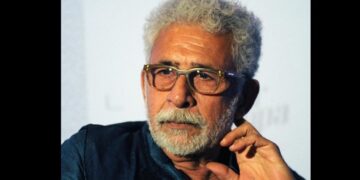New Delhi: The Rights and Risks Analysis Group (RRAG) told the diplomatic community based in New Delhi that Mohammed Yunus-led Interim Government of Bangladesh is excluding indigenous peoples of the Chittagong Hill Tracts (CHTs) and religious minorities from the constitutional reform process.
The RRAG released the report “Conflicts In Bangladesh and Myanmar: The Threat To Regional Peace And Security” through a briefing organized for the diplomatic community based in New Delhi.
While addressing the gathering Suhas Chakma, Director of the RRAG stated, “On 6 October 2024, the Government of Bangladesh notified a nine-member Constitution Reform Commission. However no representative of the hill tribes in the CHTs and religious minorities was included. Only one woman, Professor Sumaiya Khair, was included and this violates the basic spirit of the Jatiya Sangsad (Reserved Women Seats) Election Act, 2004 which reserved seats for women.”
“The worldview of Dr Mohammed Yunus is exclusion of the vulnerable communities. The soft face of the Islamists in the country i.e. Dr Yunus has come and this exclusion is not something done by ex-President H.M Ershad and ex- Prime Ministers Begum Khaleda Zia and Sheikh Hasina,” Chakma said.
The report highlighted intensification of human rights violations under Dr Yunus in the Chittagong Hill Tracts. From 19 September to 1 October 2024, the illegal plain settlers and Bangladesh Army led organized assaults on indigenous peoples in Dighinala, Khagrachari and Rangmati district.
The Bangladesh Army and the illegal settlers specifically targeted shops and other business establishments of indigenous peoples in the towns.
The number of indigenous people varied from four to nine persons and the RRAG presented a list of 75 indigenous people injured and 142 houses, shops and other business establishments, properties, Buddhist temples that were looted, destroyed and set ablaze.
“Following these attacks, across the CHTs, the hill tribes have effectively been expelled from the Upazila/Sub District and District markets dominated by the illegal plain settlers. Indigenous peoples have been effectively barred from participation in economic activities in urban areas of the CHTs because of the segregation, communal tensions and the partisan law enforcement agencies and the administration,” Chakma said.
Diplomats from Sri Lanka, Slovenia, Canada, Switzerland, Finland, European Civil Protection and Humanitarian Aid Operations Office, Guyana, Russia, the Netherlands, Kenyan, Philippines, Laos, Mongolia and Zambia participated in the briefing.
Furthermore, area experts such as former India’s Ambassador Gautam Mukhopadhay, former High Commissioner Veena Sikri and former Ambassador Nengcha Lhouvum and representatives of Carnegie Endowment for International Peace participated in the briefing.
The RRAG called upon the diplomatic community to intervene with the Government of Bangladesh for inclusion of indigenous peoples in the decision making of constitutional reform processes; recognition of the rights of the indigenous peoples and religious minorities in the proposed new constitution of Bangladesh; grant of constitutional status for the CHTs and establish an office of the High Commissioner for Human Rights in Bangladesh; and establishment of an office of the United Nations High Commissioner for Human Rights in Bangladesh to enable it to investigate human rights violations in the CHTs up to 1 October 2024.















